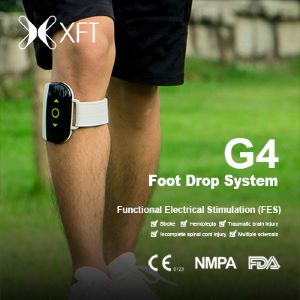Health Services Research
SHORT-TERM EFFECTS OF KINESIOLOGY TAPING ON CRANIO VERTEBRAL ANGLE IN EARLY BREAST-FEEDING WOMEN-AN EXPERIMENTAL STUDY
Thursday, November 2, 2023
10:10 AM - 10:16 AM
Location: Station 11
- SS
Seema Saini, n/a
Professor
Dr D Y Patil Vidyapeeth
Pune, Maharashtra, India - TP
Tushar Palekar
Principal
Dr D Y Patil Vidyapeeth, Maharashtra, India
Presenting Author(s)
Non-presenting Author(s)
Research Objectives: 1. To assess the short-term effects of kinesiology taping on a craniovertebral angle and pain in early breastfeeding
women.
2. To find the short-term effects of conventional exercises on
a craniovertebral angle and pain in early breastfeeding women.
3. To compare the short-term effects of kinesiology taping and conventional exercises on pain and
craniovertebral angle in early breastfeeding women.
Design: Pre - Post Experimental Study including 90 female participants.
Setting: A tertiary Healthcare facility
Participants: 90 females selected on their day 01-07 postpartum, actively breastfeeding 6-12 times/day, aged between 18-36 years.
Interventions: The application of kinesiology tape on the patient’s upper back was performed for 07 days with other conventional exercises. While the patient was seated and voluntarily retracting her scapula, kinesiology tape was applied, stretching it about 40–50% on the non–dominant side and 50–60% on the dominant side. From the front of the acromion to the spinous process of the tenth thoracic vertebra without stretching the ends of the tape.
Main Outcome Measures: The craniovertebral angle was measured with the help of MB Ruler Software 5.4.1.3. Intra-rater Cronbach's coefficient value [ICC 0 .999] and [intra-class correlation coefficient] [ICC 0.892] measures of the craniovertebral angle are highly accurate and reliable.
The Numerical Pain Rating Scale (NPRS) was used to measure upper-back discomfort, and participants were asked to rate their current level of pain on a scale from 0 to 10. Moderate reliability is shown by NPRS [ICC = 0.67; (0.27 to 0.84)].
Results: There were significant improvements (p < 0.001) in post values of the Numerical Pain Rating Scale and Cranio-vertebral Angle in K Tape group as compared to the Control Group.
Conclusions: After the analysis of this study, we conclude that the positive short-term effects of kinesiology taping as an adjunct to conventional physiotherapy exercises are much more significant, based on parameters of the Numerical Pain Rating Scale and Cranio-Vertebral Angle.
Author(s) Disclosures: There was no conflict of Interest and this study is not funded by any agency
women.
2. To find the short-term effects of conventional exercises on
a craniovertebral angle and pain in early breastfeeding women.
3. To compare the short-term effects of kinesiology taping and conventional exercises on pain and
craniovertebral angle in early breastfeeding women.
Design: Pre - Post Experimental Study including 90 female participants.
Setting: A tertiary Healthcare facility
Participants: 90 females selected on their day 01-07 postpartum, actively breastfeeding 6-12 times/day, aged between 18-36 years.
Interventions: The application of kinesiology tape on the patient’s upper back was performed for 07 days with other conventional exercises. While the patient was seated and voluntarily retracting her scapula, kinesiology tape was applied, stretching it about 40–50% on the non–dominant side and 50–60% on the dominant side. From the front of the acromion to the spinous process of the tenth thoracic vertebra without stretching the ends of the tape.
Main Outcome Measures: The craniovertebral angle was measured with the help of MB Ruler Software 5.4.1.3. Intra-rater Cronbach's coefficient value [ICC 0 .999] and [intra-class correlation coefficient] [ICC 0.892] measures of the craniovertebral angle are highly accurate and reliable.
The Numerical Pain Rating Scale (NPRS) was used to measure upper-back discomfort, and participants were asked to rate their current level of pain on a scale from 0 to 10. Moderate reliability is shown by NPRS [ICC = 0.67; (0.27 to 0.84)].
Results: There were significant improvements (p < 0.001) in post values of the Numerical Pain Rating Scale and Cranio-vertebral Angle in K Tape group as compared to the Control Group.
Conclusions: After the analysis of this study, we conclude that the positive short-term effects of kinesiology taping as an adjunct to conventional physiotherapy exercises are much more significant, based on parameters of the Numerical Pain Rating Scale and Cranio-Vertebral Angle.
Author(s) Disclosures: There was no conflict of Interest and this study is not funded by any agency
Learning Objectives:
- Upon completion, participants will be able to define the role of Posture correction with K Tape in early Breastfeeding Women
- Upon completion, the participant will be able to assess the Craniovertebral angle in forward head posture.
- Upon completion, the participant will be able to describe upper back pain due to breastfeeding
- Upon completion, the participant will be able to demonstrate ergonomics for early breastfeeding women

.jpg)
